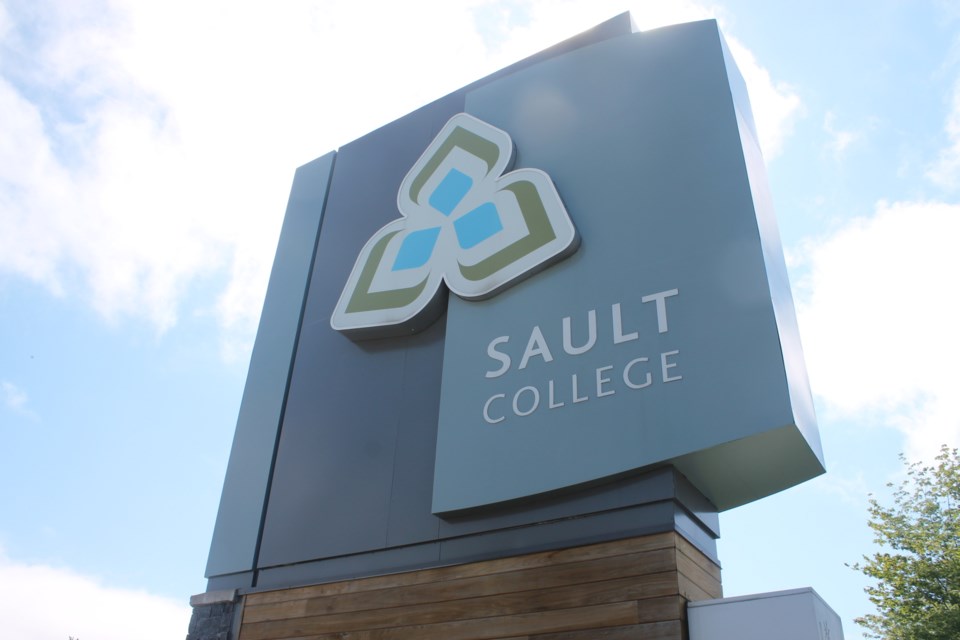A month after Sault College’s winter 2025 term began, new international student enrolment remains a challenge for all Canadian post-secondary institutions after the federal government’s implementation of an international student cap in January 2024.
A reduction in the number of post-graduate work permits for international students comes with that cap, discouraging many potential international students from applying to Canadian schools.
“From a new international student perspective, we achieved 64 per cent of our mid-year enrolment projection," said Karli Campbell, Sault College registrar in a report to the college’s board of governors Tuesday.
“We set that projection prior to IRCC (Immigration, Refugees and Citizenship Canada) releasing their post-grad work permit eligibility list. Of course, that had major impacts on the system, major impacts to Sault College. So we did fall short of our target of about 280 new international students. We welcomed 182 new international students but that was down nine per cent from winter 2024,” Campbell told the board.
Numbers are down at the college’s Brampton and Toronto campuses, which have a large international student presence.
“We are down about 1,000 students from last winter across those two campuses but that was a part of the government's announcement,” Campbell said.
A greater number of domestic students and a lesser number of international students will become the pattern in the future, college officials said at Tuesday's meeting.
“We're seeing about a 10 per cent shift in terms of what our student body will look like. It will be closer to 70 per cent domestic, 30 per cent international for the fall of 2026,” Campbell said.
Numbers show Sault College’s efforts to recruit new domestic students are paying off.
“We hit those targets bang on at 141 students (for the winter 2025 term). 141 new domestic students started in the winter and that's 32 per cent higher than where we were last winter,” Campbell said.
That success in domestic student recruitment is vital for the institution, said David Orazietti, Sault College president.
“We're going to continue to work to attract as many domestic students as we can from not only Ontario but potentially other provinces right across the country. In terms of going forward the percentage of international students is going to continue to decline,” Orazietti told reporters after Tuesday's meeting.
The majority of Sault College’s international students come from India, the Philippines and Nigeria but the number of international student applications from those countries is expected to decrease.
India is the largest individual contributor to the college’s international student enrollment at its main campus in the Sault. 573 out of 1,023 international students - or 56 per cent - of Sault campus international students are from India.
The college has begun receiving applications from seven countries not previously represented on its international student list.
Those countries are Argentina, Bangladesh, Dominica, Ecuador, South Korea, New Zealand and Taiwan.
Sault College actively recruited in each of those countries through its team’s efforts to visit each country or by developing recruiting contacts in each of those nations.
“New Zealand is part of that group. Interestingly, some of those individuals are coming from countries for the new football program that's starting in the fall. They've been recruited by the athletics department to come here and study and participate in the new college football program,” Orazietti said.
Efforts to recruit as many international students as possible will continue.
“We want to ensure that we're attracting international students to the community, where there are job opportunities, where there is postgraduate work permit eligibility to help meet the needs of local businesses, industry, and the public sector, at healthcare positions and positions in trades and technology. These are still very much in demand in our community,” Orazietti said.
For the winter 2025 term, Sault College has 115 new and 1,228 returning domestic students.
For the same term, the college has 182 new and 827 returning international students.
That combines for a total of 2,352 students at the college’s main campus on Northern Avenue.
Programs most popular among international students at the college include Health Care Leadership, Early Childhood Education, Global Business Management, and Advanced Project Management - Strategic Leadership. Students in these programs are currently eligible for post-graduate work permits.
However, Global Business Management and Advanced Project Management will not be post-graduate work permit eligible for any new students starting those programs in future semesters.
There are no new students at the college’s Brampton and Toronto campuses for winter 2025 due to the federal government’s new rules on postgraduate work permits for international students, but 756 students at Brampton and 1,071 at Toronto remain and are finishing their programs.
